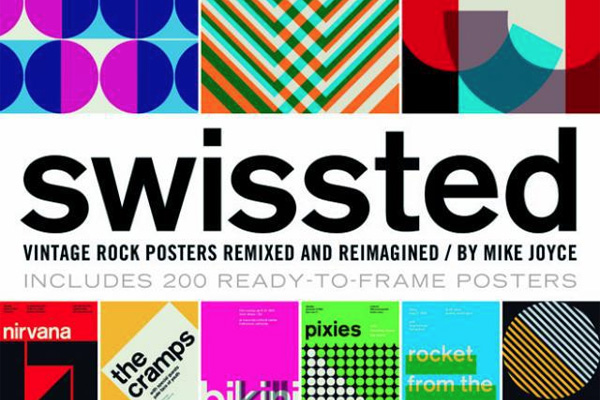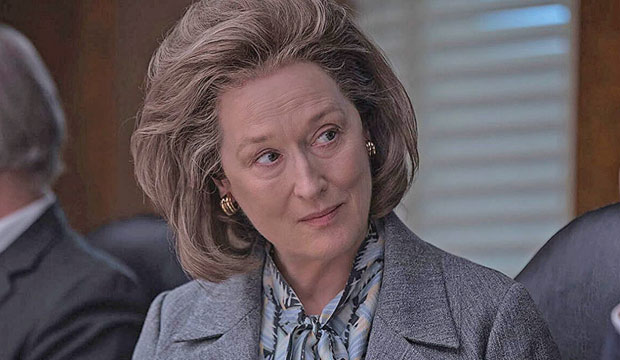Five Of Our Favorite Fictional Bands
Since its inception, rock and roll has always had a unique relationship with fiction and pop culture.
From Elvis’s famed white fringe jumpsuit, aping the Captain Marvel comic book, to the great rock operas and concept albums such as The Who’s Tommy, or David Bowie’s The Rise and Fall of Ziggy Stardust and the Spider from Mars, and to the modern-day “jukebox musicals” that line the streets of Broadway and beyond, the link between rock and roll music and both literary and genre fictions are undeniable. Even heavy metal, and its various subgenres, has often been obsessed with the imagery of horror stories and fantasy.
As such, it’s only fair that fiction started taking its cues from rock and roll. Below, you’ll find some of my personal favorite fictional bands (some of whom may or may have broken their way through page/screen and found a way into our own reality).

The Archies: This one is way too many levels of meta. The Archies were a garage band formed by the cast members of the cartoon The Archie Show, which in turn was an adaptation of the long-running comic book series Archie. The songs, which featured heavily into many episodes of the cartoon series (but also the comic book, don’t forget), where actually written and performed by Ron Dante and Andy Kim, who themselves were neither cartoon nor comic book characters but rather real live flesh-and-blood human beings (weird, right?). Are you still with me? Good.
The Archies — under the guise of Archie Andrews, Reggie Mantle, and Jughead Jones — scored a number of Top 40 hits, including “Sugar, Sugar,” which was named the Billboard #1 song of the year in 1969, and still remains a popular icon of 60s bubblegum pop. How many other fictional bands can make a claim like that? Also check out this fantastic cover of “Sugar, Sugar” by Mary Lou Lord and Semisonic.

The Paranoids: In The Crying of Lot 49, the shortest and easily most accessible novel by the notoriously elusive Thomas Pynchon, Oedipa Maas becomes the executor of her late ex-boyfriend’s estate, and soon finds herself wrapped up in a centuries-old conspiracy involving a subversive underground Postal Service.
Or maybe not.
In her journey to unearth this possibly-nefarious plot, she meets a motel manager named Miles, who sings a song in a delightfully fake British accent while he carries her bags to her room. Miles’ band, the Paranoids, are a group of teenage stoners with Beatles haircuts, who sing in British accents because, well, their manager thought it would be a good idea. When not smoking pot (and/or being incredibly paranoid, possibly as a result of the pot-smoking), the members of the Paranoids try to offer their spry young bodies up to every potential Sugar Mama they come across because hey, it was the 60s.
The Paranoids end up accompanying Oedipa during part of her odyssey (because, you know, dude, it’s like, why not?), providing her with companionship in the forms of sex, drugs, and rock n roll, and the book is full of excerpts from their song lyrics — some of which may have profound meaning in the greater context of the story, and some of which are, well, clearly the bi-product of 16-year-old stoners who sing with fake British accents). The Crying of Lot 49 is either a postmodern exploration or parody of a postmodern exploration (or, maybe not) of Californian culture in the 60s, and the Paranoids themselves are clearly intended as an allusion to early Beatles-mania. Or, maybe not…

Sex Bob-Omb: First of all, let’s take a moment to reflect on how awesome that name is. How do you make an edgy rock n’ roll pun off of the name of those little bomb dudes from the Super Mario games? Just add “sex” in front of it. Easy enough! Sex Bob-Omb is Scott Pilgrim’s band, from the Scott Pilgrim graphic novel series. Well, okay, it’s actually Stephen Stills’ band. He’s the eccentric genius frontman; Scott just plays bass.
What makes them unique is that they’re actually kind of bad (or at least, not very good), and that’s part of their charm. The graphic novels include some lyrics and chords to their songs, allowing the reader to imagine their mediocre garage rock sound for him or herself; in the film version, the music is written by Beck (who does an amazing job of creating music as an amateur garage band). Also, pretty much every song begins with drummer Kim Pine shouting “We are Sex Bob-Omb! ONE-TWO-THREE-FOUR!” Eat that, DeeDee Ramone.

The Band from You Don’t Love Me Yet: Jonathan Lethem’s rom-com-parody novel You Don’t Love Me Yet tells the story of a band that never quite decide at a name but at some point might be called Robot Head in Mourning or maybe Monster Eyes even though that’s also the name of their most popular song. The story focuses on Lucinda, the bass player, who works for a Complaint Line. Not any specific complaint line — people just anonymously complain, and there’s someone on the other end of the line to listen. Lucinda soon enters into a complicated relationship with her favorite complainer, and begins to use his complaints as song lyrics for the band. But what happens when the complainer hears his lines used in songs?
The book explores sex, influence, integrity, and the spark of creativity in the mid-90s LA alt-rock scene. There’s a subplot involving the heartbroken lead singer kidnapping a kangaroo and hiding it in his bathtub, too, but that’s not so important right now. What makes You Don’t Love Me Yet notable is author Jonathan Lethem’s interest in the art of adaptation (further reflecting the themes of the novel). Lethem has made all of the song lyrics from the book available under a Creative Commons license, as part of his “Promiscuous Songs” project, in which he encourages adaptations of and inspiration drawn from his work (well, certain works). So next time you’ve got writer’s block on that hit song you’re working on — you know where to turn.
Barrytown/The Futuristics/Backbeat/Sonic Death Monkey/Kathleen Turner Overdrive/Barry Jive and the Uptown Five: Okay, so these guys couldn’t settle on a name either, but they have kind of an excuse, in that Nick Hornby’s High Fidelity from which they came has been adapted from a novel into both a movie and a musical. Still, the point of the band remains the same, regardless of the medium, as a vehicle for the ever belligerent Barry, a part-time record shop employee and full-time obnoxious musical elitist who spends full-time hours at the same record store where he’s employed part-time just so he can continue being a music snob (and portrayed quite famously in the film by one Jack Black).
At the end of the book/movie/play, store owner and protagonist Rob begrudgingly agrees to let Barry’s band open for his DJ set, and despite the crowd’s expectations of pretentious, self-indulgent rock, their performance utterly surprises everyone. The story, in whatever form you digest it (besides the musical), is an incredibly entertaining and utterly relatable tale about people who let their obsessions define them.
But I mean, c’mon — like you don’t sit around making Desert Island All Time Top Five Lists of, well, everything possible. It’s okay, you don’t have to hide yourself from me.


